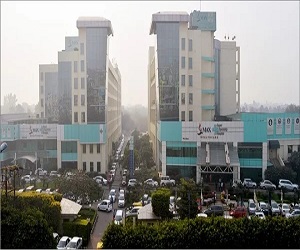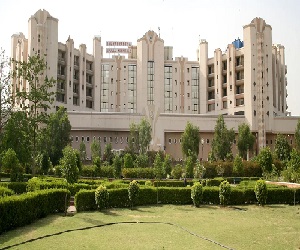Penectomy surgery, a significant medical intervention, entails the partial or complete removal of the penis. Though it may seem drastic, this procedure becomes imperative in certain medical contexts. Our blog delves into the intricacies of penectomy surgery, shedding light on its necessity, procedural details, potential beneficiaries, impacts, and the journey of recovery.
What is Penectomy Surgery?
Penectomy surgery, the surgical extraction of all or a portion of the penis, is predominantly employed in treating conditions like penile cancer, significant penile injuries, or, in unique instances, as part of gender affirmation procedures. This choice is invariably profound, demanding comprehensive information and robust support for individuals navigating such a critical decision.
Who Needs Penectomy Surgery?
Penectomy surgery is often advised for individuals facing the diagnosis of penile cancer, a condition that poses significant health risks. In these instances, excising the affected area of the penis becomes crucial to halt the proliferation of cancerous cells and safeguard overall well-being. Moreover, instances of severe penile trauma, stemming from accidents or severe infections, may also necessitate penectomy surgery to facilitate optimal healing and avert potential complications.
How to Prepare for Total Penectomy Surgery?
Planning for penectomy surgery encompasses multiple facets, intertwining both physical and emotional groundwork. Below, we outline crucial measures to navigate this journey:
- Consultation: Arrange a consultation with a proficient surgeon renowned for their expertise in penectomy procedures. During this appointment, they will assess your individual circumstances, elucidate the surgical process, and attentively respond to any queries or apprehensions you might harbor.
- Medical Evaluation: Your designated surgeon will meticulously conduct a comprehensive medical assessment to gauge your overall well-being and ascertain the necessity for any supplementary tests or screenings ahead of the surgery.
- Psychological Support: Seeking emotional solace from cherished ones or contemplating professional counseling is paramount in navigating the profound psychological repercussions of such a procedure.
- Lifestyle Adjustments: Your surgeon might recommend specific lifestyle adjustments, such as ceasing smoking, adhering to a nutritious diet, and incorporating regular exercise, to enhance your overall health in preparation for the surgery.
Surgical Procedure of Penectomy Surgery
The surgical process for penectomy surgery can fluctuate based on the unique case and the extent of cancer. Generally, it includes the following steps:
- Anesthesia: To ensure your comfort and pain-free experience during the surgery, you will be administered general anesthesia, rendering you unconscious throughout the procedure.
- Incision: The surgeon will make an incision to access the affected area and excise the cancerous tissue. The precise type and location of the incision will be determined by the individual circumstances of the case.
- Penile Removal: The entire penis, encompassing both the glans and shaft, will be surgically removed. Additionally, the surgeon will meticulously address any impacted lymph nodes, if deemed necessary.
- Reconstruction Options: Reconstructive possibilities, like penile prosthesis or urethral rerouting, may be contemplated based on the patient’s preferences and specific circumstances.
Side Effects and Complications after Total Penectomy Surgery
As with any surgical intervention, penectomy surgery entails potential side effects and complications, which may comprise:
- Pain and Discomfort: Experiencing pain and discomfort in the surgical vicinity is typical following penectomy surgery. Your healthcare team will furnish you with suitable pain management strategies to alleviate these sensations.
- Emotional and Psychological Impact: The emotional and psychological repercussions of penile loss can be profound. Seeking assistance from professionals or support groups can provide invaluable support in navigating these challenges and coping with the emotional toll.
- Urinary and Sexual Function: Penectomy surgery can impact urinary and sexual function, potentially leading to urinary incontinence and erectile dysfunction. However, these side effects can be managed with medical interventions and support from healthcare professionals.
Recovery:
The recovery journey post-penectomy surgery is individualized, contingent upon specific circumstances. Physical recuperation typically spans several weeks, marked by potential discomfort, swelling, and pain. Adhering to the surgeon’s directives for wound care and pain management is paramount. Psychological convalescence might extend further, necessitating support from healthcare providers, support groups, and loved ones to navigate this period effectively.
To summarize, penectomy surgery is a crucial medical intervention often warranted for individuals grappling with penile cancer or severe trauma. Total penectomy entails the complete excision of the penis and can elicit profound physical and emotional ramifications. The recovery trajectory encompasses both physical convalescence and psychological adaptation, underscoring the necessity for comprehensive support throughout the entirety of the journey.
Always remember, if you or someone you know is contemplating or undergoing penectomy surgery, seeking guidance and support from a healthcare professional is indispensable for tailored advice and assistance.
Penectomy Surgery cost in India are as follow
| Treatment | Cost in USD | Stay in Hospital |
| Penectomy Surgery | 2500-3000 | 5-7 Days |
| Penile Implant surgery | 2000-5400 | 0-1 Days |
| Erectile Dysfunction | 1200-1500 | 0-1 Days |
| Diabetes cause Impotence | 1700-2100 | 0-1 Days |
| Phalloplasty Surgery | 1100-1800 | 4-5 Days |
| Peyronie’s Treatment | 1600-2100 | 0-1 Days |














